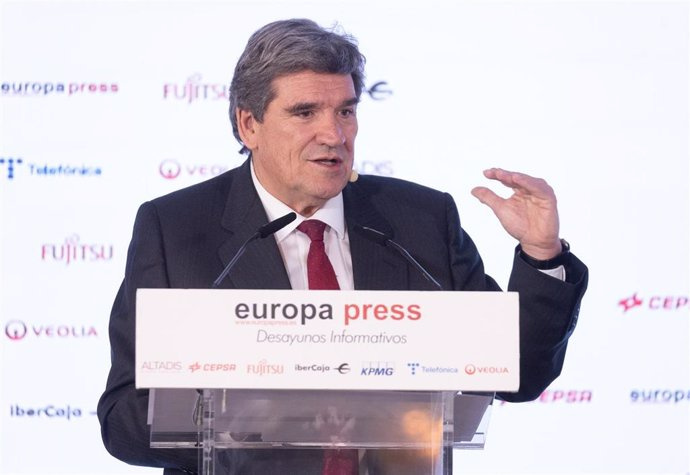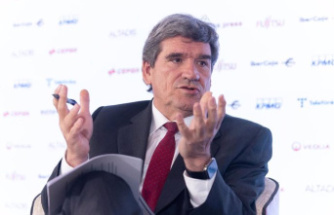He affirms that the planned objective of making 300,000 public workers permanent at the end of the year will be achieved
MADRID, 12 Abr. (EUROPA PRESS) -
The Minister for Digital Transformation and the Public Service, José Luis Escrivá, has assured that Spain has eliminated the causes that led to the ruling of the Court of Justice of the European Union (CJEU), in relation to the fact that Spanish law does not deter of the abuse of interim workers and after requesting a change in Spanish regulation, and added that the Government's commitment to make 300,000 public workers permanent by the end of the year will be achieved, meeting the planned objective.
This was stated by the head of the Public Service during the Europa Press Information Breakfasts this Friday, where he reiterated that the CJEU ruling is based on "concrete and old cases" and recalled that "clarifications are still being requested, even from the courts." Europeans" in relation to this topic.
Likewise, he has indicated that the Government "looks forward" and that the causes that led to the CJEU ruling have been "eliminated", as is the case of the "important" measure by the Executive to eliminate the replacement rate and stop think that human resources are a cost to start seeing them as an "investment".
"Of course, if human resources are interpreted as a cost, in the end that introduces a procyclicality in the fiscal adjustment that should not be, and that is what produces all these needs after cheating with interims. That is what we want to eliminate "he stressed.
Along these lines, Escrivá has announced that at the end of this year the Government's objective committed to the Recovery, Transformation and Resilience Plan of stabilizing 300,000 public workers will be met. "By the end of this year there will be 300,000 public workers who will have indefinite work," he celebrated.
Asked when the 2% salary increase promised for civil servants this year will be on the payroll, Escrivá stated that it will be "as soon as possible."
"As soon as possible we find the legislative instrument. We are in a period, as you know, that is difficult. Because of the electoral processes, but we will look for the appropriate legislative instrument that we can carry," he stressed, since there will be no new Budgets this year, but that those for 2023 have been extended.
In relation to this year's Public Employment Offer (OEP), the head of the Public Service has assured that his department is "working on it" and that it will be "generous."
"We are building it," he reiterated, without wanting to give exact data as to whether it will be larger than the 2023 OEP, when the Government approved the largest ordinary offer of public employment (OEP) in history, made up of 39,574 places, 15.8 % more compared to 34,151 in 2022.
During his speech, the head of the Public Service also explained that the weight of the public sector in Spain "is not relatively high", nor is public employment or public spending, compared to the rest of Europe. "In any case it is above 40%," he pointed out.
Thus, he has indicated that the public service must move towards Nordic models, which are characterized by having an "excellent and not small" public administration, since they have invested in it as nations have gained economic weight.
Along these lines, he has stressed that "the main thing" is to put human capital at the center, that is, public workers, for which the Government is working to make careers within the public administration "much more attractive" for attract "the best professionals."
In this way, he recalled that the Government is working to eliminate the replacement rate, a historical model since the late 90s that "perpetuates" the structures of public administration on the relationships of pre-existing jobs. "We have to plan ahead for the results," she stressed.
To this end, he has indicated that work is being done with social agents, public sector unions and workers and with the Spanish Federation of Associations of the Higher Bodies of the Civil Administration of the State (Fedeca), among others, to ensure that the public function is "more modern and attractive."
"We are going to ensure that this is the result of a great consensus," he stated, for which he recalled that there is a document that is in public hearing, which is the document for consensus for an open Administration.
"We have a transformative challenge in the public service and new technologies, digitalization is a very important lever to improve the way we interact with society from the public sphere," he indicated.













